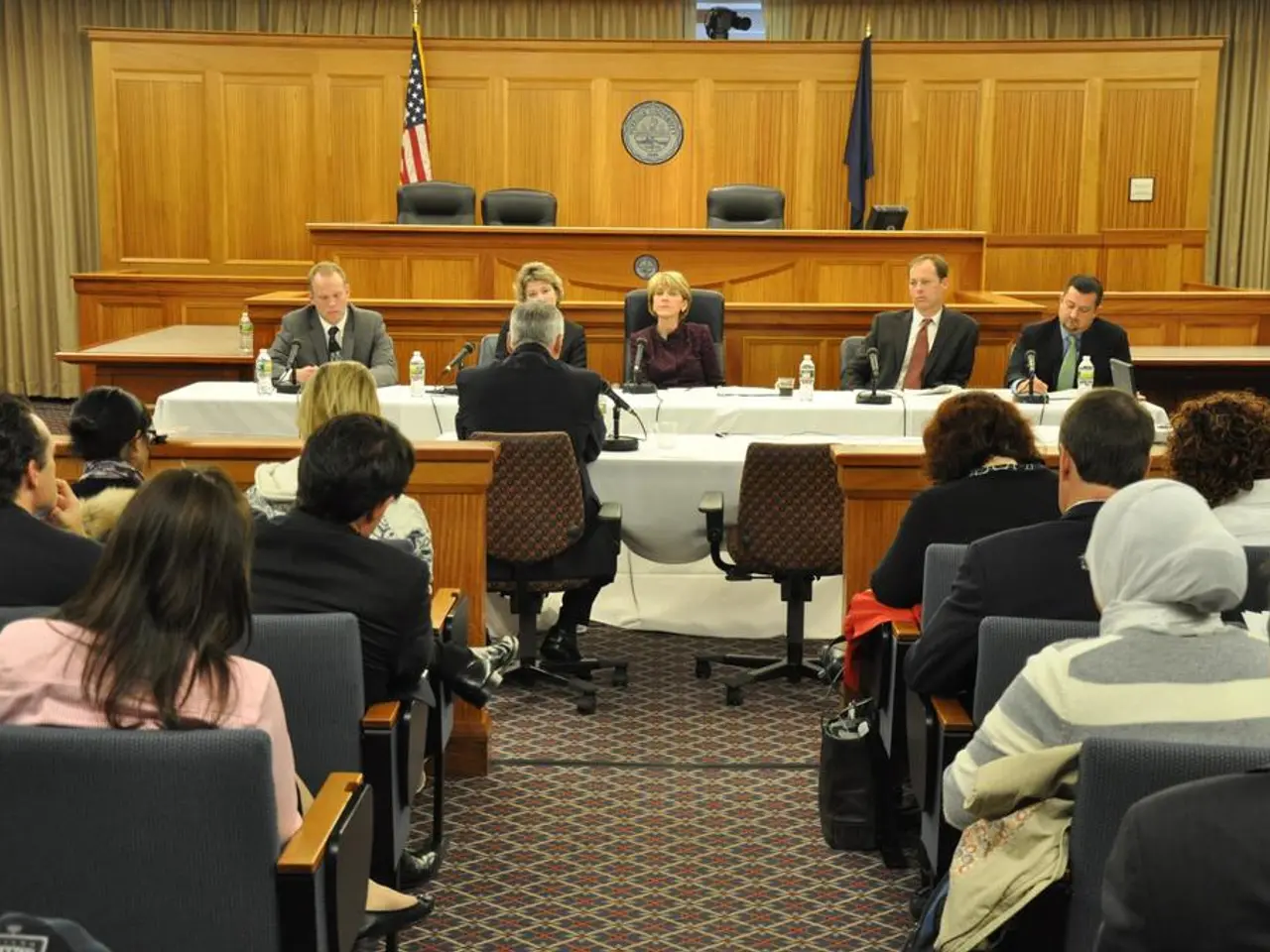Trump demands Intel CEO's dismissal due to suspected Chinese ties
In a recent development, Senator Tom Cotton of Arkansas has raised national security concerns about Intel CEO Lip-Bu Tan’s past investments and business ties to Chinese companies, including those linked to China’s military [1][4].
The senator's scrutiny focuses on whether Tan, through his venture firm Walden International, invested over $200 million in more than 600 Chinese firms, some affiliated with the People’s Liberation Army and state-linked entities [1][4].
Cotton sent a letter to Intel’s board chair questioning if Tan’s background and investment history pose risks to Intel’s critical role in U.S. defense supply chains, especially as Intel participates in federal Secure Enclave initiatives and holds a $3 billion Department of Defense contract [1]. Questions also arise about Tan’s awareness and handling of subpoenas related to Cadence Design under his past leadership, where Cadence pled guilty and paid fines for selling chip-design tools to a Chinese military university [1][4].
Intel CEO Lip-Bu Tan has publicly responded, denying wrongdoing and emphasizing his commitment to U.S. national security, legal compliance, and ethical standards over his 40+ year career. He stated that some misinformation is circulating about his past investments and indicated support from Intel’s board of directors [3].
The controversy has not been limited to Senator Cotton. Former President Donald Trump has joined the calls for Tan’s resignation, labeling him “highly conflicted” due to his reported ties to the Chinese Communist Party [2].
It is important to note that the 2024 Reuters report, which forms the basis of the claims, states that it is not illegal for US citizens to hold stakes in Chinese companies, including those with ties to the Chinese military, if these companies are not listed on the US Treasury’s Chinese Military-Industrial Complex Companies List. None of the companies mentioned in the report were on the list at the time [5].
The issue remains active, with the Intel board under pressure to address these national security concerns officially. Intel did not immediately respond to a request for comment.
References:
[1] The Wall Street Journal, "Senator Questions Intel's China Ties," August 11, 2024. [2] The Hill, "Trump calls for Intel CEO's resignation over China ties," August 12, 2024. [3] CNBC, "Intel CEO denies wrongdoing amid national security concerns over Chinese ties," August 13, 2024. [4] Reuters, "U.S. chip executive Lip-Bu Tan's investments in China raise national security concerns," June 1, 2024. [5] Reuters, "Exclusive: U.S. chip executive Lip-Bu Tan invested over $200 million in more than 600 Chinese firms," June 1, 2024.
- The national security concerns about Intel CEO Lip-Bu Tan have expanded beyond Senator Tom Cotton, with former President Donald Trump also calling for Tan's resignation due to his reported ties to the Chinese Communist Party.
- Questions concerning Lip-Bu Tan's past investment history and handling of subpoenas related to Cadence Design are not limited to national security risks; they also involve issues of law and ethics, as evidenced by the fines paid by Cadence Design for selling chip-design tools to a Chinese military university.
- Amidst these concerns and calls for investigation, Intel CEO Lip-Bu Tan has publicly denied wrongdoing and emphasized his commitment to U.S. national security, legal compliance, and ethical standards throughout his over 40-year career.
- The ongoing controversy highlights the delicate balance between technology, politics, and policy, as foreign investments by American companies in countries like China can raise issues of security and conflict of interest, particularly in sectors like defense and military technology.
- It is crucial to consider the broader implications of the General News surrounding this issue, including the role of AI in war-and-conflicts, crime-and-justice, and the need for comprehensive policy-and-legislation to regulate these complex intersections of science, technology, and security.






